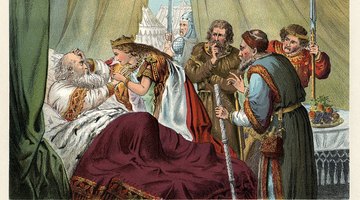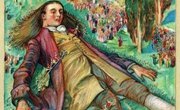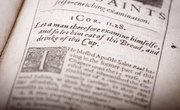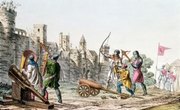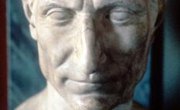Studying the literature of the English language can enrich our lives in ways we never imagined. Beyond the simple entertainment of a good story, readers stand to gain compassion for a wide range of people across cultures and time periods. In addition, sustained immersion in the literary arts as a whole results in a richer vocabulary and a certain ease and confidence when the reader approaches the practice of composition.
Historical Perspective
Care to guess what keeps the work of William Shakespeare in perennial production? The plays written by the world's most famous playwright grapple with the timeless themes of betrayal, hunger for political power and the complicated dance of romantic love. In this rapidly evolving high-tech world, there is something deeply comforting about the fact that after 500 years, some things seem fixed and steady. In Shakespeare's own words, "What's past is prologue."
Human Diversity
What a sad state of affairs it would be if one relied exclusively on the local broadcast news and "reality" TV to paint a picture of human civilization. Popular culture tends to celebrate three things: youth, beauty and the grotesque. Simply put, people need an antidote to the sensational to stay sane. Literature provides that by showcasing characters with seemingly rarefied traits such as modesty and humility. For example, Charles Dickens' Joe Gargery proves that a simple blacksmith can be a hero in "Great Expectations."
Cultural Understanding
For nonnative English speakers, studying literature — as with the study of English art, philosophy and economics — gives the amateur anthropologist a window to the soul of English culture and customs. Indeed, the uptight social conventions of Oscar Wilde's "An Ideal Husband" speaks volumes when the character of Mrs. Chevely says, "Morality is simply the attitude we adopt towards people whom we personally dislike." The comedic irreverence of modern British television shows (such as the iconic "Monty Python") makes a lot more sense when one is aware of the social oppression that served as its breeding ground.
Improved Writing
In his 1992 film "Husbands and Wives," Woody Allen's character Gabe, a college professor, famously says of his craft, "You can't teach writing. You expose students to good work and hope it inspires them." There is some truth here. In fact, many would argue quite heartily that there is no better teacher for those wishing to write well in English than the body of work known as the English literary canon. Reading great literature improves one's skills as a writer.
Related Articles
References
Writer Bio
Stacy Smith is a writer based in Austin, Texas. She hold a bachelor's degree in English and a master's degree in theater. She has post-graduate training in curriculum and instruction.

